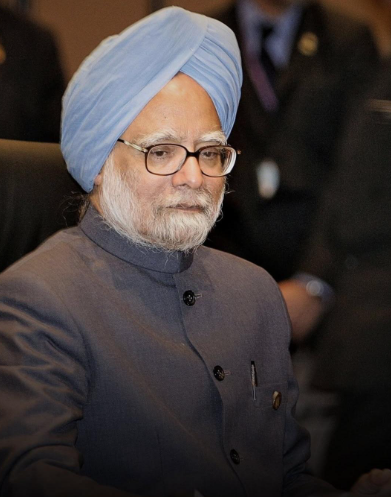
The man who reformed India’s economy is no more. Former Prime Minister Dr. Manmohan Singh passed away aged 92 on 26 December 2024 at AIIMS, New Delhi. Known for his calm approach, both in personal and political spheres, Dr. Singh will forever be remembered for his legacy of major economic reforms of the early 1990s, which not only liberalised India’s economy but also established him as a leading economist and statesman. Dr. Singh was born on 26 September 1932 in a small village in the erstwhile Punjab province of undivided India. He completed his bachelor’s and master’s in Economics at Panjab University. He then moved to the United Kingdom, where he pursued his undergraduate studies in Economics at the University of Cambridge in 1957, graduating with First Class Honours. His passion for economics led him to Oxford University, where he earned his D. Phil. in Economics from Nuffield College in 1962. His early works, including his book “India’s Export Trends and Prospects for Self-Sustained Growth (1964)”, critically examined India’s inward-oriented economic policies. Dr. Singh’s first foray into public service came in 1971 when he joined the Government of India as an Economic Advisor in the Commerce Ministry. In 1972, he was appointed Chief Economic Advisor in the Ministry of Finance. Over the next few decades, Dr. Singh held several key positions within the government, including Secretary of the Ministry of Finance, Deputy Chairman of the Planning Commission, Governor of the Reserve Bank of India, and Chairman of the University Grants Commission. However, it was in 1991, during a time of crisis, that Dr. Singh’s expertise truly changed the course of India’s history. Appointed as Finance Minister by then Prime Minister P.V. Narasimha Rao, he spearheaded the economic reforms that marked the beginning of India’s liberalisation, ushering in a new era of market-driven growth, saving India from a collapsing economy. His leadership during this period earned him the admiration of global economists and prestigious awards, such as the Asia Money and Euro Money Finance Minister of the Year accolades in the early 1990s. In 2004, after a decade of his landmark economic reforms, Dr. Singh was sworn in as the 14th Prime Minister of India. His tenure as Prime Minister is so far the fourth longest, after Jawaharlal Nehru, Indira Gandhi and Narendra Modi. Dr. Singh managed to navigate the challenges of coalition politics as he headed the United Progressive Alliance (UPA) government. His second term as Prime Minister, from 2009 to 2014, was similarly defined by efforts to consolidate India’s economic growth while balancing the needs of India’s vast population. While his efforts to reform India’s economy are well known, his contribution to shaping the nation's Foreign policy is often overlooked. The 2008 India-US Civil Nuclear Agreement is rightly credited to Dr. Manmohan Singh. The deal was in the works for three years as it faced international and domestic obstacles, particularly when left-wing parties in India withdrew support. Despite this, Dr. Singh remained resolute and successfully secured the India-US nuclear deal. Like most politicians, Dr. Singh’s tenure was also marred with criticisms, corruption scandals and allegations of being a puppet prime minister. He was often criticised for his infamous silence, which led his critics to call him “Maunmohan” Singh. Nevertheless, he was widely regarded as a man of integrity, an academician turned politician whose intellect guided him through the maze of Indian governance. Dr. Singh’s long and distinguished career was recognised with numerous honours and awards. In 1987, he was awarded the Padma Vibhushan, India’s second-highest civilian award. He received the prestigious Adam Smith Prize at Cambridge and was recognised globally for his economic acumen. He served as a member of the Rajya Sabha for 33 years, retiring in April 2024. Although Dr. Manmohan Singh retired from active politics after his tenure as Prime Minister, his influence remained strong in the corridors of power. His dedication to serving the country was best seen when Dr. Singh came to the parliament in a wheelchair on 7 August 2023 for the vote on the Delhi Services Bill. Dr. Singh is survived by his wife, Mrs. Gursharan Kaur, and their three daughters. His passing leaves a void in India's political and economic landscapes, but his impact on the nation will be felt for generations to come. As the Prime Minister, Dr. Manmohan Singh faced criticism from the opposition, media, and even within his party lines. Despite this, Dr. Singh answered nearly 60 questions at his last press conference in 2014. As the people of India mourn the loss of Dr. Manmohan Singh, his famous words hold true: history will indeed be kinder to him.
Dr. Manmohan Singh with President George Bush on his visit to America/ Source: USA Archives
Dr. Manmohan Singh meeting with Narendra Modi/ Source: Narendra Modi, Instagram handle
Source: Indian National Congress, Instagram
27 Dec 2024
Krishnanshu Panda